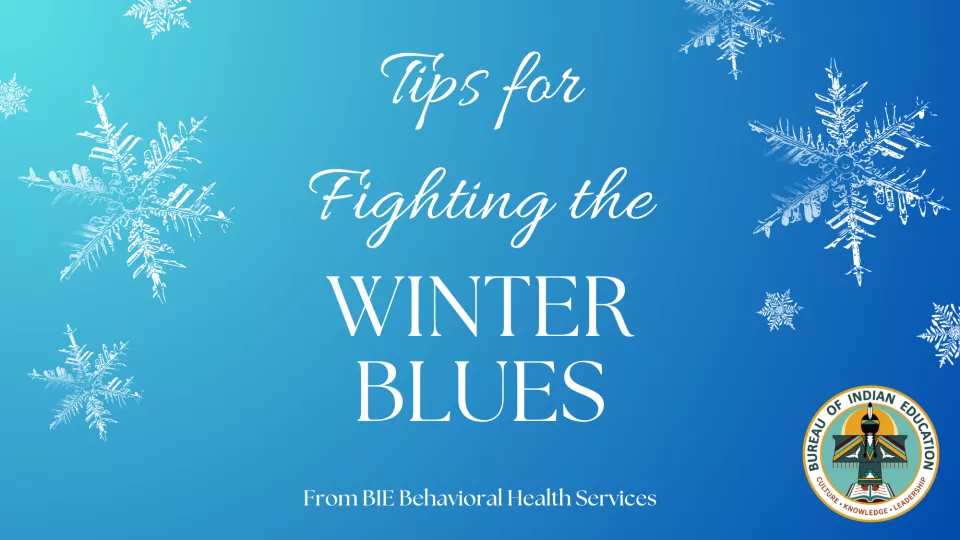
Seasonal depression and Seasonal Affective Disorder affect millions of people each year, especially younger individuals. The holiday season can also be challenging due to less sunlight and vitamin D exposure.
The Bureau of Indian Education is committed to holistic wellness. They provide behavioral health services and recommendations to help students and employees feel happy and healthy year-round. BIE Student Behavioral Health Program Specialists Leslie Crow and Crystal Becenti share their strategies for avoiding the winter blues.
Tips for Battling Seasonal Depression:
- Focus on What You Can Control: Practice breathing exercises and remember that even small changes can make a difference.
- Practice Healthy Coping Skills: Write in a journal about your thoughts and feelings, or maintain a gratitude journal to reflect on what you are thankful for. Remember: everything is temporary.
- Increase Self-Awareness: Be mindful of signs of depression in yourself. Recognizing these signs early allows you to create a plan to cope.
- Create a Plan: Organize your time to reduce holiday stress. Be productive, use your break effectively, and make time for activities you enjoy.
- Limit Screen Time: Avoid excessive scrolling on your phone. Set boundaries on how much time you spend on screens.
- Eat a Healthy Diet: Maintain a balanced diet, even with seasonal treats.
- Stick to a Sleep Schedule: Go to bed and wake up at the same time each day during the holiday break.
- Ask for Help: Remember your support system. Call the BIE’s Behavioral Health and Wellness 24/7 Call Line at 1-844-ASK-BHWP (1-844-275-2497) for immediate crisis support, or to talk to a school counselor.
- Soak Up the Sun: Engage in healthy activities near a window and spend time outside when possible.
- Change Your Environment: If you find yourself stuck in negative thoughts, try moving to a different space.
- Engage with Your Culture: Participate in cultural activities or ceremonies. These practices can be healing and help you connect with others.
- Stay Active: Keep a regular physical activity routine, such as playing sports, running, or dancing.
If depression persists for more than two weeks, consider speaking with a healthcare provider.
Contact
Office of Communications
Bureau of Indian Education Central Office
U.S. Department of the Interior
1849 C Street NW, MIB-3610
Washington, DC 20240
Telephone: 202-941-0789
Email: biecommunications@bie.edu





